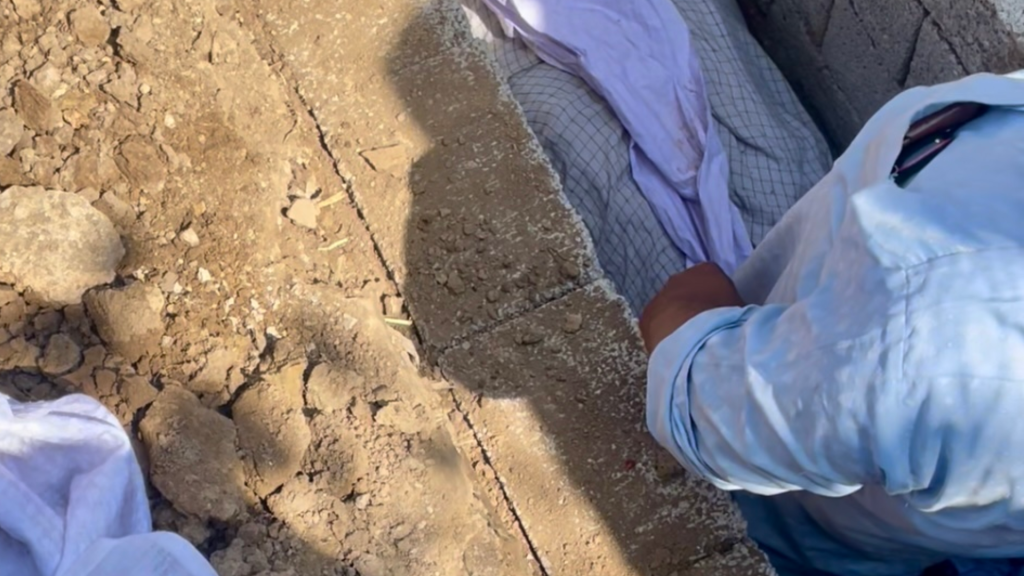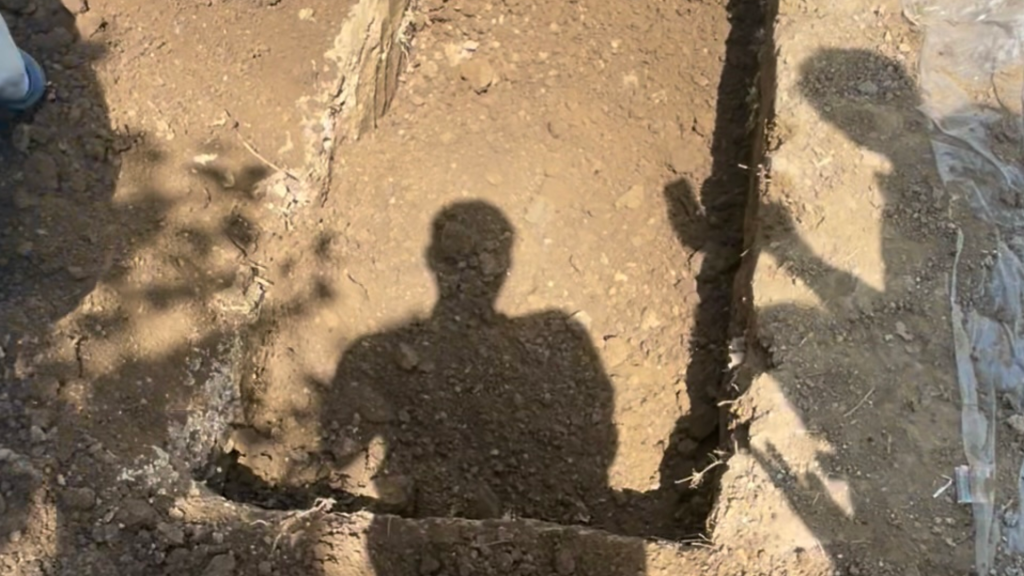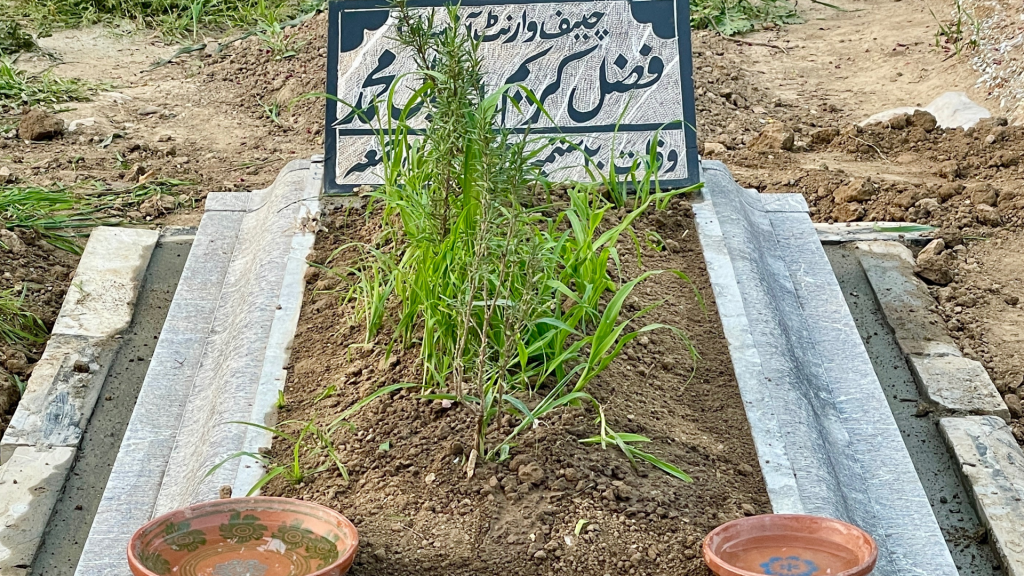It has been just over two months since I stood beside my father’s grave and watched as his body was gently lowered into the earth. That day felt surreal and heartbreaking, and the questions that arose in my mind afterward were both emotional and deeply human. I found myself wondering: What really happens to a human body beneath the ground? How does our faith explain this process? How can understanding these natural changes help strengthen our belief in Allah, the Creator?
As a Muslim, I know that the Qur’an often reminds us of our origin and our return to the earth. Allah says:
From the earth We created you, and into it We shall return you, and from it We shall bring you forth once more (Qur’an 20:55).
Standing at my father’s burial, this verse took on a new, very personal meaning. My father—once lively, wise, and caring—was now part of the soil that nurtured him. Through my grief, I felt a need to learn more, to understand both the scientific and spiritual aspects of this reality. Ultimately, this understanding helped me see the wisdom of Allah’s design more clearly and encouraged me to focus on what truly matters in this temporary world.

From a scientific point of view, the process of decomposition is natural and follows certain patterns. After burial, a human body does not remain as it was. Within hours to days, cells in the body begin to break down due to a lack of oxygen. Bacteria, which once lived harmlessly inside the intestines, now spread and help decompose tissues. Over time, soft tissues gradually return to simpler organic compounds, and the nutrients they release enrich the soil. While many factors affect this process—such as soil type, temperature, moisture, and the presence of a coffin—scientists have studied average rates and patterns of decomposition extensively [1]-[3]. For example, research at forensic anthropology “body farms,” like the University of Tennessee’s Anthropological Research Facility, shows how bodies placed under different conditions decompose at different speeds [1]. In a moderate climate with average soil conditions, significant changes in the body can happen over a few weeks to months.
During the first few days, the body is in what experts call the “fresh stage,” where cells break down internally [2]. After about a week or two, “bloat” may occur due to gases produced by bacteria. In a grave, this process may be less visible to us at the surface. Insects might enter, depending on how deep the grave is and whether the coffin is sealed. Over the next few months, “active decay” sets in, and most soft tissues gradually return to the earth. Eventually, after about a year or more, the body is often reduced mostly to bones. Even these bones will break down over time, turning to minerals that blend with the soil [3].
These scientific findings are well-documented. For instance, Mann, Bass, and Meadows [3] conducted studies showing how various conditions impact the timeline of decomposition. While these timelines are not exact for every case—because many environmental factors come into play—they give us a good idea of what generally happens.
When I first learned these details, I worried it might feel too clinical or cold. But as a believer, I found that knowing these natural steps actually reinforced what the Qur’an teaches. Allah reminds us that we come from dust and return to it, and science simply shows us how this return takes place. Allah says:
And surely We created you [from the earth] and then returned you into it, and will bring you forth again (Qur’an 20:55, paraphrased).
This matches perfectly what forensic science confirms about our physical journey back to the earth.
Reflecting on my father’s situation, I realised that knowing the body’s fate did not diminish his dignity or worth. Instead, it humbled me. It reminded me that no matter how strong, wealthy, or admired a person may be in life, their body follows the same path after death. This humility is a core teaching in Islam. The Prophet Muhammad (peace be upon him) reminded us to remember death often, calling it the “destroyer of pleasures.” By remembering our mortality and the inevitability of returning to dust, we become less attached to the material world and more focused on what truly matters: our relationship with Allah, our good deeds, and our moral character.
The Qur’an frequently calls our attention to the cycles of nature and the signs of creation as lessons in faith. For example, Allah says:
And it is He who gives life and causes death, and to Him belongs the alternation of the night and the day. Will you not then understand? (Qur’an 23:80).
Just as day and night alternate by Allah’s command, life and death are also under His careful design. Understanding decomposition is not just a scientific curiosity—it is a reminder that our existence follows a path Allah has planned, where every stage serves a purpose.
My father’s passing made these verses feel alive. I knew his soul was not in the grave, as our faith tells us that after death, the soul moves into another realm called Barzakh. Meanwhile, his body’s changes in the grave were a natural part of the cycle. Islam teaches us that the grave can be a place of peace or difficulty, depending on a person’s deeds, sincerity, and faith. While we cannot witness what the soul experiences, we trust Allah’s perfect justice and mercy. The body’s return to dust is simply the completion of the physical journey.

This realisation helped ease my grief. Before, the idea of decomposition frightened me. But recalling Allah’s words and understanding the science helped me see it as a gentle return to the earth, a return to our origins as created beings. It also pushed me to reflect on my own life. If I, too, will one day be returned to dust, how should I live now? Should I focus on gathering wealth and fame, or on performing righteous deeds that benefit others? The Qur’an guides us:
Every soul will taste death, and you will only be given your full compensation on the Day of Resurrection (Qur’an 3:185).
This verse reminds me that true success is not measured by worldly standards, but by how we serve Allah and help His creation.
The process of decomposition also shows Allah’s wisdom in designing a balanced world. Our bodies, after death, provide nutrients back to the soil, supporting new life—plants, insects, and microorganisms. In the Qur’an, Allah often points to the earth and its cycles as signs for those who reflect. He says:
And you see the earth barren, but when We send down upon it rain, it stirs and swells and grows [something] of every beautiful kind (Qur’an 22:5).
Just as rain revives the earth, our bodies returning to dust contribute to the ongoing cycle of life. This cycle shows that nothing is wasted in Allah’s creation. Everything He created has a purpose and place.
From an Islamic legal perspective (Shari’ah), the funeral and burial rituals are designed to respect the body and follow the natural order Allah has set. The deceased is washed, shrouded in a simple cloth, prayed over, and buried without extravagant measures. This straightforward approach aligns with the belief that we are all equal before Allah and will face the same physical end. These laws and etiquettes encourage humility, reminding us that no matter who we are, our final resting place is the earth. Through these rituals, we come face-to-face with our mortality, prompting us to return to Allah in repentance and gratitude.
Science, in turn, does not conflict with these teachings. Instead, it helps us see how perfectly Allah’s design is put into action. Forensic studies at facilities like the University of Tennessee, where researchers observe how environmental factors influence decomposition [1], show that this process follows predictable, natural laws. Mann, Bass, and Meadows [3] documented how variables like temperature and burial depth change the rate at which the body returns to the soil. Such findings only strengthen the believer’s conviction that nature runs according to Allah’s laws. If He can create life and sustain it for decades, is it not even easier for Him to bring us forth again on the Day of Judgment?
This connection between the physical and spiritual aspects of death ultimately brings peace to the grieving heart. While I miss my father dearly, understanding what happens underground and trusting in Allah’s promise of resurrection eases my sorrow. The Prophet Muhammad (peace be upon him) taught that this world is a testing ground. When we see that the body, regardless of wealth or status, returns to dust, we realise that our time here is short and purposeful. It urges us to strive harder to do good, to repent for our mistakes, and to rely on Allah’s mercy. The Qur’an reassures us:
Did We not create you from a worthless fluid? (Qur’an 77:20).
This verse humbles us, showing that our beginnings are simple. If Allah can bring forth life from such a beginning and guide it through the complexity of existence, why should we doubt the wisdom in our eventual return to the earth? And why should we fear that He cannot recreate us for the Day of Judgment? He promises to raise us again, even if our bones have turned to dust, down to our very fingertips (Qur’an 75:3-4).
In the months since my father’s passing, blending scientific understanding with Qur’anic reflection has helped me come to terms with his loss. It has reminded me that he is now in Allah’s care, that his soul’s journey continues, and that the natural processes occurring underground are simply part of the grand design set forth by the One who is All-Knowing and All-Powerful. The knowledge of decomposition, supported by research [1]-[3], has become a tool for strengthening my faith, not weakening it.

Above all, I share these reflections to help others who may be curious, grieving, or seeking to reconcile their faith with what science tells us. By understanding that decomposition is a normal, divinely willed process, we can move beyond fear or discomfort. We can embrace the humility that comes with knowing our final earthly fate. We can dedicate ourselves to what will truly matter when we stand before Allah: our faith, our deeds, and the sincerity of our hearts.
In the end, the Qur’an’s call to reflect on creation and the cycle of life and death is central to finding meaning in these scientific truths. Instead of seeing decomposition as a grim fact, we can see it as a sign of Allah’s power and wisdom, one that encourages us to live a life of purpose, compassion, and devotion. Just as my father’s body returns to dust, so too will mine, and so will all of us. May we use the time we have to become better servants of Allah, to do good for others, and to trust in His promise that He will bring us forth again, complete and whole, on the Day when all secrets are revealed and all deeds are judged.
References
[1] W. M. Bass and J. Jefferson, Death’s Acre: Inside the Legendary Forensic Lab the Body Farm, Penguin, 2003.
[2] M. L. Goff, A Fly for the Prosecution: How Insect Evidence Helps Solve Crimes, Harvard University Press, 2000.
[3] R. W. Mann, W. M. Bass, and L. Meadows, “Time since death and decomposition of the human body: Variables and observations in case and experimental field studies,” Journal of Forensic Sciences, vol. 35, no. 1, pp. 103-111, Jan. 1990.



